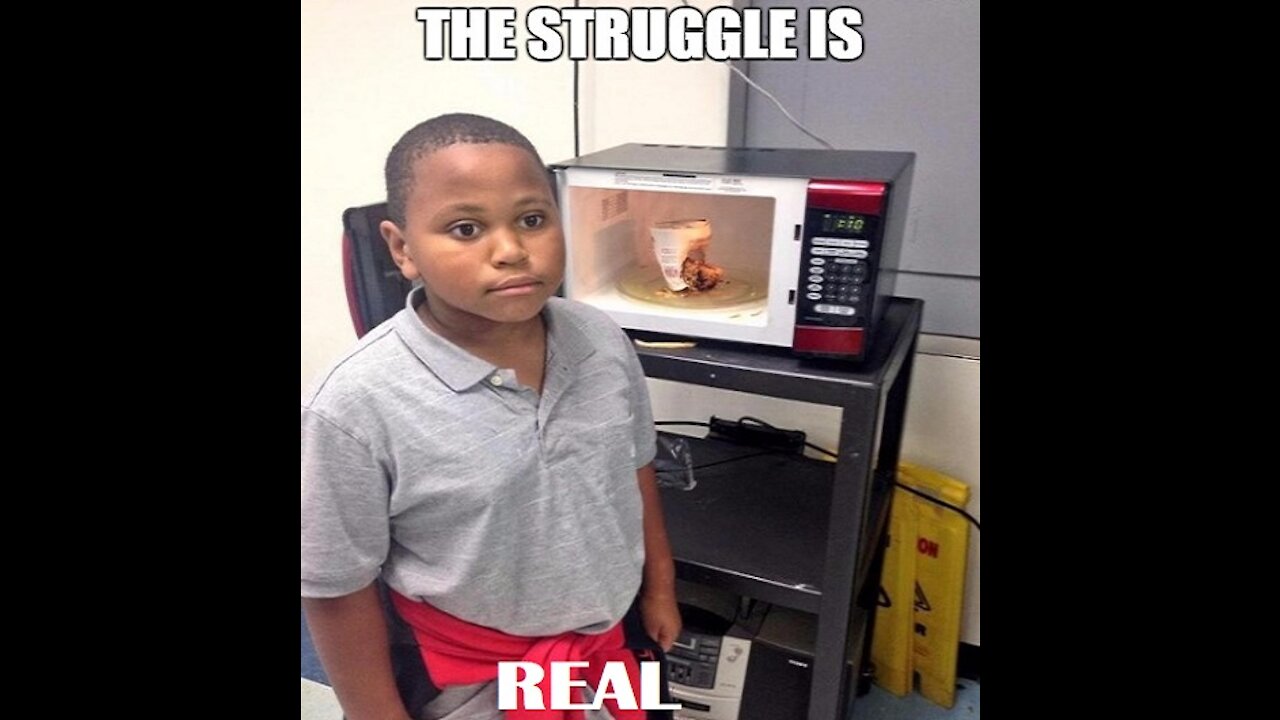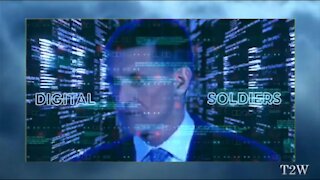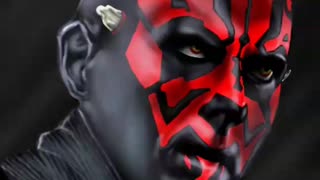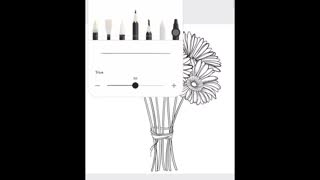Premium Only Content

Apparently Digital Blackface is a thing, whites & non-blacks aren't allowed to post Oprah memes now
#Oprah #Digital #Blackface #Struggle #Racism
White and non-black people are being told not to share any of the numerous Oprah Winfrey memes from her bombshell interview with Prince Harry and Meghan Markle - because they are a form of 'digital blackface'.
The Slow Factory Foundation, a non-profit dedicated to social and environmental justice, this week issues a warning about digital blackface, describing it as an online phenomenon where white and non-black people share GIFs and photos of black people to express emotion, and stating that it often perpetuates negative stereotypes that they are 'aggressive, loud, and sassy.'
In an Instagram post, the organization used an Oprah meme as a direct example of 'digital blackface' - sparking a furious debate in the comments where some agreed with the message, while others hit back, claiming that banning non-black people from posting the memes equates to 'black erasure'.
'Performing Blackness, be it IRL or online, is not an acceptable form of expressing reaction or dissatisfaction, especially not in exchange for likes and retweets,' the organization wrote in its post.
The Slow Factory Foundation went on to insist that people shouldn't be sharing the recent onslaught of Oprah memes just because they're popular, suggesting that they are reminiscent of white people wearing blackface in minstrel shows.
'Since the #MeghanandHarry interview on Oprah, we’ve been seeing a lot of digital blackface infractions with a few of Oprah’s reaction gifs and images going viral, but that doesn’t mean you should be using them,' the non-profit explained.
The comments were limited, likely to weed out any racist messages, but thoughts on the post were incredibly mixed.
Some praised the organization for raising awareness for digital blackface, while others felt the inclusion of memes was going too far and actually a form of black erasure.
'Thanks for educating! Didn’t know about this,' one person wrote, while another added: 'What an interesting point that I’ve never even considered. I never been a fan of non Black people using Black emojis because it felt obviously wrong.
'But sharing gifs and images is one that never even crossed my mind and the example given makes so much sense. Definitely going to evaluate what I post and when.'
While a number of commenters agreed that white and non-black people shouldn't use black emoji, there was a popular argument that equating memes and GIFs with digital blackface was doing more harm than good.
Some said the conversation was actually taking the focus away from more important issues such as blackface and cultural appropriation.
'Blackface is a violent and harmful representation of black people rooted in violence. Using a gif of Oprah is NOT blackface. That is such a gross misnomer and false equivalency,' one person commented.
'I...think we need to cover the basics before we start trying to coin terms like digital blackface,' another Instagram user said. 'Racial reconciliation and decolonizing is getting very oversaturated and overcomplicated.
'Can we just try to heal from all the racial trauma that has impacted all people before we start trying to police how people use gifs and emoticons? I'm sure this can be a part [of] the process, but it's really a leap.'
The idea of digital blackface has been around for years, but it gained mainstream traction when writer Lauren Michele Jackson used the term in her viral essay for Teen Vogue that was published in 2017.
Following Meghan and Harry's tell-all with Oprah, a number of media outlets published stories highlighting the most hilarious memes to come out of the interview.
-
 2:30
2:30
Time2Wake.
4 years ago $3.71 earnedDIGITAL SOLDIERS EVERYWHERE
9.44K12 -
 0:50
0:50
WFTX
3 years agoFauci-ing is now a thing
39 -
 0:12
0:12
OfficialNomad
4 years ago $0.03 earnedDigital Nature
3521 -
 3:01
3:01
jtsampson
4 years agoMaul digital paintin
106 -
 1:33
1:33
HannahSturtz
4 years agoDigital Coloring - Part 5
140 -
 1:12
1:12
HannahSturtz
4 years agoDigital Coloring - Part 4
34 -
 11:45
11:45
BIG NEM
4 hours agoWe Blind Taste Tested the Best Jollof in Toronto 🇳🇬🇬🇭
28 -
 15:40
15:40
Fit'n Fire
7 hours agoArsenal SLR106f & LiteRaider AK Handguard from 1791 Industries
881 -
 8:34
8:34
Mike Rowe
6 days agoWhat You Didn't Hear At Pete's Confirmation Hearing | The Way I Heard It with Mike Rowe
33.1K18 -
 7:13:44
7:13:44
TonYGaMinG
8 hours ago🟢LATEST! KINGDOM COME DELIVERANCE 2 / NEW EMOTES / BLERPS #RumbleGaming
56.7K4